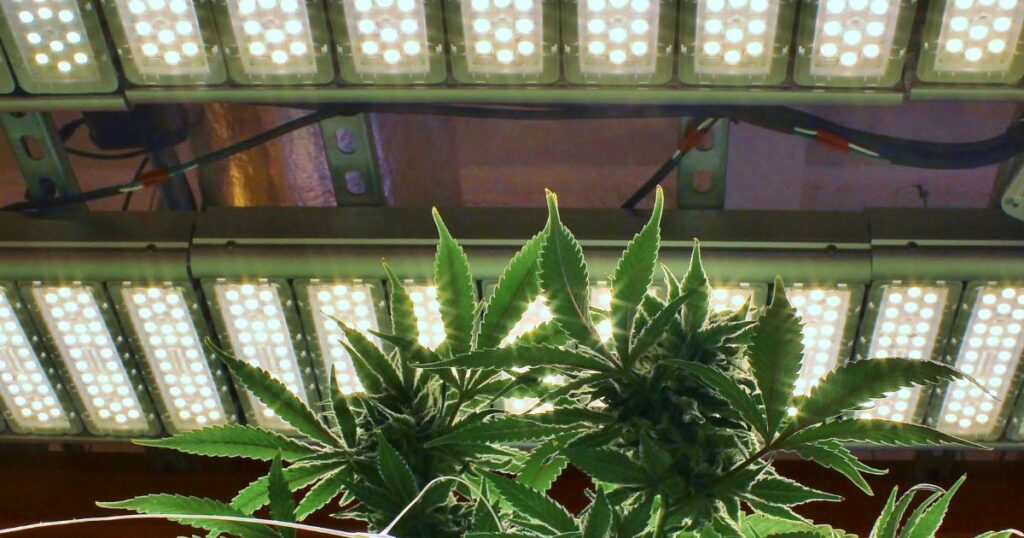The story of Brendan Tatum, a former Rohnert Park police sergeant, reads like a bad crime drama—complete with corruption, irony, and an obvious lack of justice. After building a career locking people up for marijuana offenses and extorting cannabis operators, Tatum now faces a new layer of disgrace.
Recently, it has been reported that Sonoma County code inspectors discovered what’s been deemed an illegal cannabis grow operation on his property. KQED, the leading outlet breaking much of this story, offers a detailed account that unveils the layers of irony and systemic inequities within law enforcement.
History of Brendan Tatum’s Corruption
Tatum’s troubles didn’t begin with the illicit cannabis grow on his property. His fall from grace started years earlier and is tied to actions during his time as a police officer in Rohnert Park.
Beginning in 2013, Tatum worked with the city’s drug interdiction and civil asset forfeiture task force. Their mission? Seize illegal drugs and contraband to keep the streets safe. But under Tatum’s leadership, the task force morphed into what many described as a group of rogue officers operating like a criminal enterprise.
By 2018, KQED reported that Tatum and his partners had been unlawfully seizing marijuana and cash from motorists, often during pretextual traffic stops. He and other officers allegedly pocketed cannabis they confiscated, bypassing proper reporting channels. The city later paid $1.8 million in civil settlements to plaintiffs who accused officers of essentially acting as “highway robbers.”
These acts of corruption eventually caught the attention of federal authorities. Tatum was indicted in 2021 on counts of extortion, tax evasion, and conspiracy. Despite pleading guilty, he has yet to serve his sentence. Adding insult to injury, his illegal cannabis grow operation—on land he owns—represents a significant twist for a man who once ruined the lives of countless cannabis operators.
Inspectors Fins Cannabis Growing on His Property
Sonoma County code inspectors discovered Tatum’s illegal indoor cannabis grow in March 2024 during an inspection initially focused on a chicken coop. Documents obtained by KQED show that aerial footage revealed, according to the authorities, the telltale signs of cannabis cultivation, including obscured windows, large AC units, and unpermitted construction. During the inspection, the smell of marijuana filled the barn, where inspectors found over 500 cannabis plants.
When confronted, Tatum downplayed his involvement. “This looks bad, especially with my case being for the same issue,” he admitted, adding that he was only trying to make money for his family before serving time in prison. His defense attorney later claimed that Tatum had rented the barn to a tenant for cannabis cultivation and was unaware of the operation.
The county fined both Tatum and his tenant $7,500 but chose not to file any criminal charges—a stark contrast to Tatum’s actions against people with cannabis, where authorities arrested dozens. One can’t help but wonder if the leniency he received was preferential treatment.
The Hypocrisy of Law Enforcement’s Cannabis Policies
The irony of the Brendan Tatum saga is difficult to ignore. For years, he reportedly made money targeting cannabis operators, ruining lives in the process. Yet when he was found guilty of similar conduct—growing cannabis to profit financially—the consequences were minimal.
Defense and civil rights attorney Izaak Schwaiger, who represented many of Tatum’s victims, put it best in his remarks to KQED. “I personally know Tatum to have ruined the lives of dozens and dozens of marijuana farmers out there,” Schwaiger said.
It’s no secret that law enforcement has historically targeted marginalized communities and small-scale cannabis operators with disproportionate severity. Yet Tatum, who openly admitted to being part of an illegal cannabis grow operation, walked away with just a fine. It’s hard not to draw the conclusion that his background as a former officer shielded him.
For many cannabis operators and advocates, Tatum’s story is a glaring example of systemic inequity. While traditional operators often face severe consequences for minor violations—sometimes even jail time—Tatum got off relatively unscathed.
One of his victims, Zeke Flatten, summed up the betrayal. “I should have been made aware of this as a victim,” Flatten told KQED, expressing disbelief at how Tatum’s federal overseers failed to act on the discovery of illegal cannabis plants on his property. The optics, to put it bluntly, are appalling.
As the cannabis industry continues to gain acceptance and regulation, Tatum’s case shows the need for more accountability and fairness in enforcing laws. Justice shouldn’t depend on the badge you once wore.
What Brendan Tatum’s Story Reveals About Cannabis Crimes in America
Tatum’s saga underscores a painful truth about the justice system’s treatment of cannabis. Despite growing legalization and acceptance of marijuana nationwide, authorities still handle cannabis-related offenses inconsistently, often influenced by factors like race, income level, and—apparently—job title.
Here at Beard Bros Pharms, the takeaways we find from Tatum’s case highlight several critical issues. First, there is the problem of selective accountability. Cannabis operators often face severe penalties for even minor infractions, while high-profile offenders like Tatum manage to avoid jail time altogether.
This leads us to the second point: systemic biases. Tatum’s case clearly shows how law enforcement figures often receive leniency while others—especially those in marginalized communities—face much harsher consequences. Additionally, the irony of reform is clear. Cannabis legalization aimed to address and fix unjust policies, yet authorities continue to resist truly equitable enforcement, as shown by Tatum’s repeated leniency.
Tatum’s case is not just a scandal; it’s a teachable moment. Americans need to grapple with the hypocrisies surrounding cannabis enforcement. Legalization is only one step toward justice—the next is ensuring that offenders, regardless of their background or former occupation, face equal accountability under the law.
For those passionate about building a fairer cannabis industry and holding bad actors accountable, following examples like Tatum’s is important. KQED has been instrumental in exposing the twists and turns of this saga, and their reporting continues to show what the justice system gets right—and wrong—about this entire saga.
















